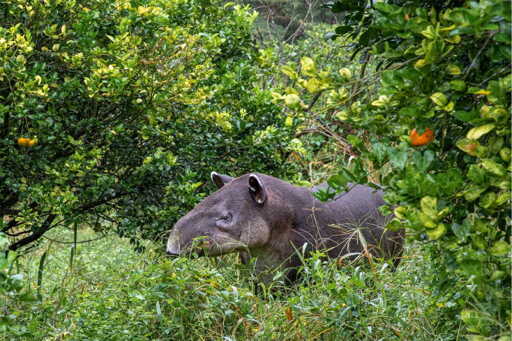When a toucan plucks fruit from a tree in the Amazon Rainforest, it’s doing more than just finding lunch. Moving to a new location and depositing seeds via its droppings could be crucial in addressing climate change. New research shows that when animals that spread seeds disappear, forests lose much of their ability to capture carbon from the atmosphere. The study, published in the Proceedings of the National Academy of Sciences, analyzed data from more than 3,000 forest sites across tropical regions worldwide. Areas with fewer seed-dispersing animals store up to four times less carbon than forests with healthy animal populations. “The results underscore the importance of animals in maintaining healthy, carbon-rich tropical forests,” study lead author Evan Fricke, from the Massachusetts Institute of Technology in the U.S., told Mongabay. “When seed-dispersing animals decline, we risk weakening the climate-mitigating power of tropical forests.” Human activities have broken ancient relationships between animals and plants that have sustained forests for thousands of years. Roads block migration routes; deforestation destroys habitat; hunting reduces animal populations. Each disruption affects forests’ ability to store carbon. The study found that 81% of tropical trees depend on animals to spread their seeds. Birds, mammals and other animals carry seeds to new locations, often traveling long distances. When forests are cut down, animals serve as nature’s delivery system for forest renewal. A tapir and some of the seeds it disperses. Photo by Mauro Galetti. “We know that in tropical forests, where more than three-quarters of trees rely on…This article was originally published on Mongabay
From Conservation news via this RSS feed


